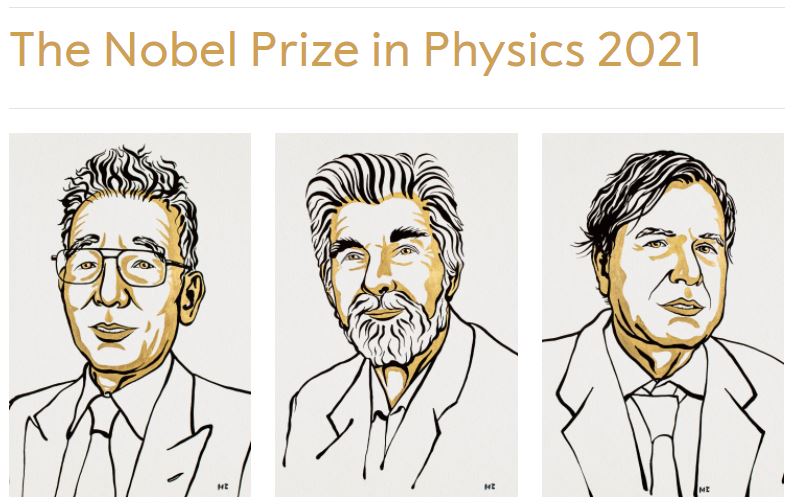
06/10/21 11:25 AM IST


Syukuro Manabe, born 1931 in Shingu, Japan. Ph.D. 1957 from University of Tokyo, Japan. Senior Meteorologist at Princeton University, USA.
Klaus Hasselmann, born 1931 in Hamburg, Germany. Ph.D. 1957 from University of Göttingen, Germany. Professor, Max Planck Institute for Meteorology, Hamburg, Germany.
Giorgio Parisi, born 1948 in Rome. Italy. Ph.D. 1970 from Sapienza University of Rome, Italy. Professor at Sapienza University of Rome, Italy
Source: Indian Express

17 Sep
'Dehradun and several other districts in Uttarakhand have experienced very heavy rainfall over the past few days, triggering landslides in multiple areas and causing rivers to swel
Read More
08 Sep
'The Rajasthan Coaching Centres (Control and Regulation) Bill, 2025, is a significant piece of legislation passed by the Rajasthan Assembly to regulate and oversee the state's burg
Read More
28 Aug
'Recently, the Indian Space Research Organisation (ISRO) successfully carried out its first Integrated Air Drop Test (IADT-1), a crucial milestone in the preparation for the countr
Read More